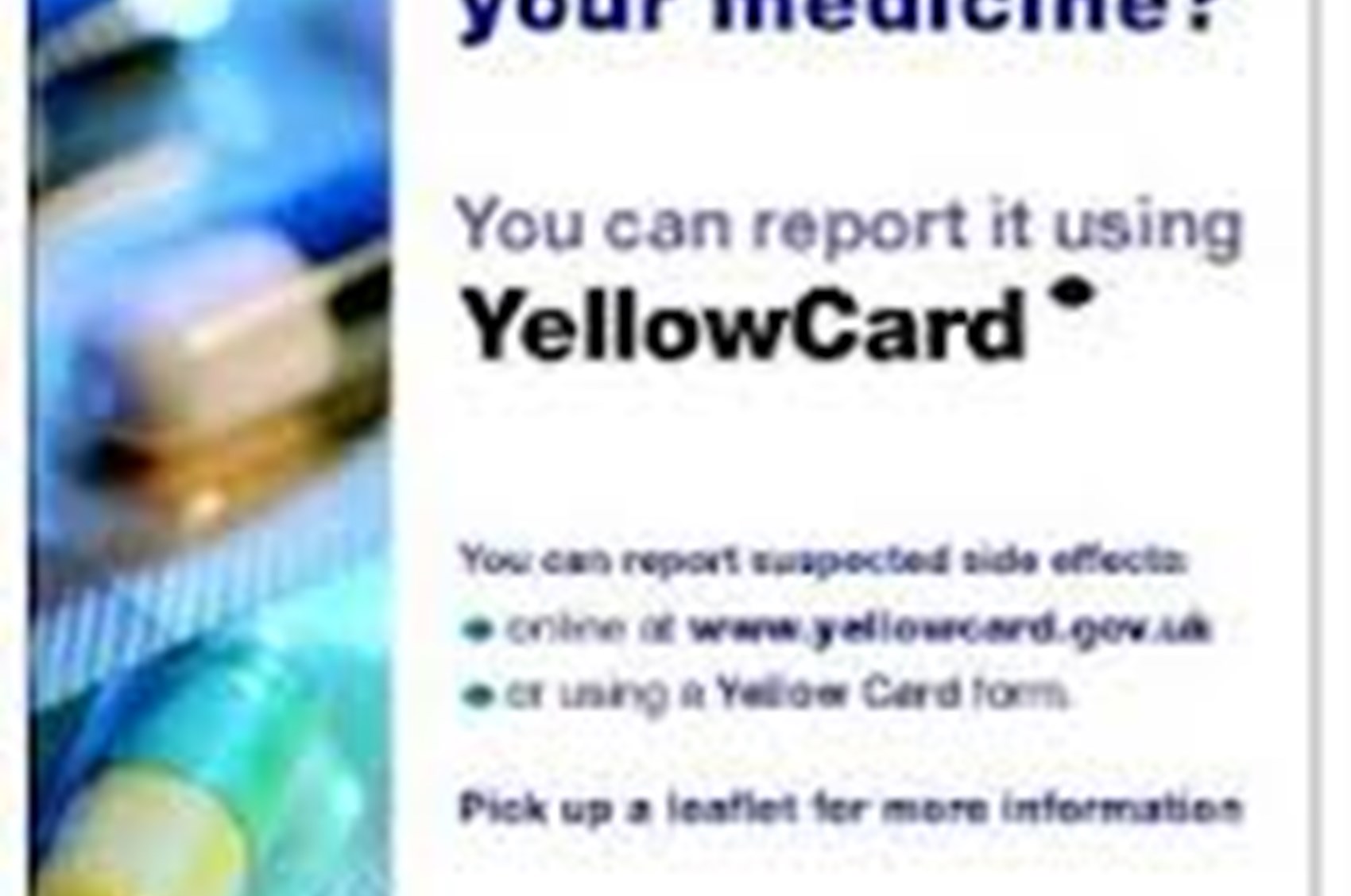
The Medicines and Healthcare products Regulatory Agency (MHRA) has launched a public health campaign in partnership with pharmacy organisations to highlight the need for the public to report any suspected side effects from medicines through the Yellow Card Scheme.
The Yellow Card Scheme – was introduced in 1964 following the Thalidomide tragedy and has proved to be a successful system for the early detection of emerging safety issues with medicines. It acts as an early warning system for identifying previously unrecognised adverse drug reactions, but also provides valuable information on recognised side effects. This allows the MHRA to identify and refine understanding of potential safety issues that may affect the treatment of patients. It is used to update prescribing advice for health professionals.
Healthcare professionals and the public can report side effects on a voluntary basis and there is a legal obligation for pharmaceutical companies to do so. While the MHRA appreciates the ongoing support of GPs, pharmacists and the public for the scheme, figures show that reports from members of the public have declined from a high of 3,584 in 2006 to 1,789 in 2012. GP reporting has fallen steadily over a nine-year period from 5,578 in 2003 to 3,511 in 2012.
The MHRA’s campaign to raise awareness of the Yellow Card Scheme aims to ensure health professionals recognise the importance of reporting adverse reactions and to increase public awareness of the scheme. It has been developed with and supported by the National Pharmacy Association, the Royal Pharmaceutical Society, the Company Chemist Association, the Association of Independent Pharmacies and Royal College of GPs.
Yellow Cards are being distributed to pharmacies and materials to help health professionals to recognise the importance of reporting adverse reactions using the Yellow Card Scheme are being rolled out throughout February. A promotional video to encourage the public to report adverse drug reactions to the MHRA is also being shown in 339 Rowlands pharmacies across the UK.
The value of the Yellow Card scheme has been demonstrated many times and it has helped to identify numerous important low-risk safety issues over the years, including:
- Serious haemorrhages from blood-thinning drug dabigatran (Pradaxa) and the need to closely monitor kidney function
- Interaction between grapefruit juice and a particular brand of Amlodipine for blood pressure
- Seizures with the anti-smoking medicine Zyban when taken with other medicines
- Alopecia (hair loss) in women taking the Yasmin contraceptive pill
Dr June Raine, the MHRA’s Director for the Risk Management and Vigilance of Medicines, said:
“It’s vital that pharmacists, GPs and the public use the Yellow Card Scheme to report any suspected adverse drug reactions from their patients, in particular if it is a serious or previously unknown side-effect from a medicine or vaccine.
“We realise healthcare professionals have heavy workloads and we greatly appreciate their support for the Yellow Card Scheme. But we need them to use the scheme more frequently and report even when they are not sure a side-effect has been caused by a medicine. Identifying a new risk could have a major impact on the clinical management of patients.
“Patients and the public can also give a different and extremely useful insight into suspected side-effects and we are very keen to receive Yellow Cards directly from them too. Our promotional video shows that Yellow Cards can be submitted easily by patients and healthcare professionals through the website at www.mhra.gov.uk/yellowcard"
